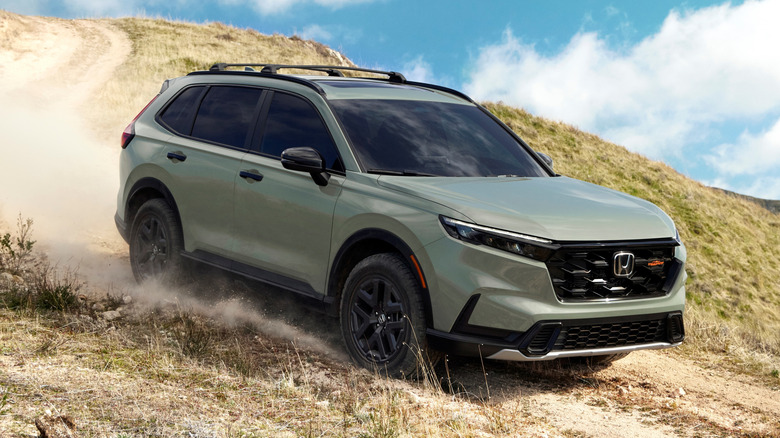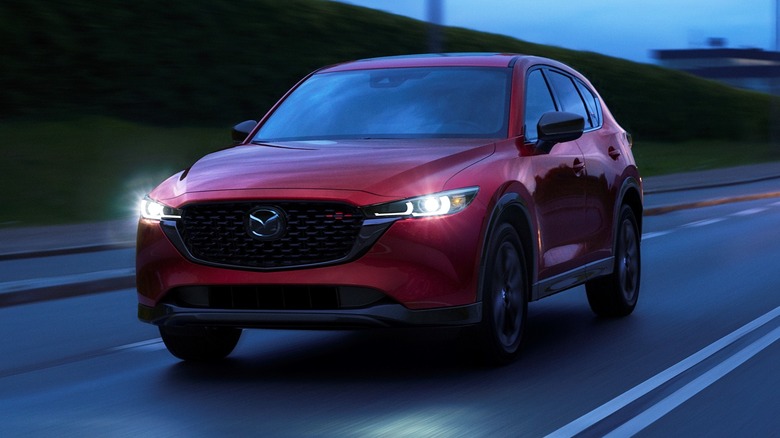Do SUVs Cost More Than Other Cars To Insure? Here's What The Data Says
Car ownership comes with many ongoing expenses that extend beyond the sticker price. According to MarketWatch, car insurance alone can easily add up to $2,436 per year in expenses, at a monthly average of $203 for full coverage or $61 for minimum coverage. However, the actual cost of your car insurance will vary depending on various factors, including your insurer, the level of coverage you require, your age, location, driving history, and the type of car you have. For instance, car models that are most at risk of getting into accidents or being broken into usually have some of the highest premiums because of the increased risks that they present to insurance providers. Hence, one of the things you do to possibly get cheaper car insurance is to choose the right type of vehicle.
Which begs the question: do SUVs cost more to insure than other car types? Quite the opposite, actually. SUVs are cheaper to insure than other vehicle types like sedans and trucks. Car insurance for a medium SUV in the US costs an average of $1,529 a year, according to figures from The Insurance Information Institute. A medium sedan, meanwhile, costs $1,694 on average per year. This is due in part to the fact that insurance companies often see SUVs as lower risk as they're mostly equipped with advanced safety technologies, which can help to either reduce the severity of collisions or prevent accidents altogether.
However, you may be quoted a lot more insurance premium than the SUV average if you opt for an electric SUV, as they're generally more expensive to insure than their gasoline-powered counterparts. This is due to the fact that when damaged in an accident, repair and replacement costs are typically higher for EVs than for gasoline-powered models.
What are the cheapest cars to insure?
According to CarEdge data, SUVs make up nine out of the 10 cheapest cars to insure in 2025, with the budget-friendly Chrysler Voyager minivan being the only exception. The 2025 Mazda CX-5 tops the list of the cheapest cars to insure overall, with an average annual insurance cost of $1,877. It is followed closely by the Honda CR-V, which has an average premium of $1,881. That rises slightly to $1,890 for the Hyundai Kona and up to $1,893 for the Subaru Outback. Rounding out the top five is the aforementioned Chrysler Voyager, with an average annual cost of $1,897.
Others include the Subaru Crosstrek (with an average annual cost of $1,897), Hyundai Tucson ($1,905), Mazda CX-30 ($1,909), Jeep Wrangler ($1,913), and Kia Niro ($1,914). CarEdge says these vehicles stood out thanks in part to their low maintenance costs, excellent safety scores, and good reliability. Take the Hyundai Kona. It has a great J.D. Power reliability rating of 86 out of 100 points and has been designated a 2025 Top Safety Pick+ by the Insurance Institute for Highway Safety (IIHS) for its strong performance in safety tests.
With the Kona determined to be safe and reliable, insurance providers likely felt there's little chance of things going wrong and accordingly deemed it a low enough risk to offer cheaper car insurance quotes than the industry average for SUVs. The Kona comes standard with a deluge of driver-assistance features, including blind spot monitoring, lane departure warning, lane-keep assist, rear cross-traffic alert, forward automatic emergency braking, as well as forward collision warning with pedestrian and cyclist detection.

